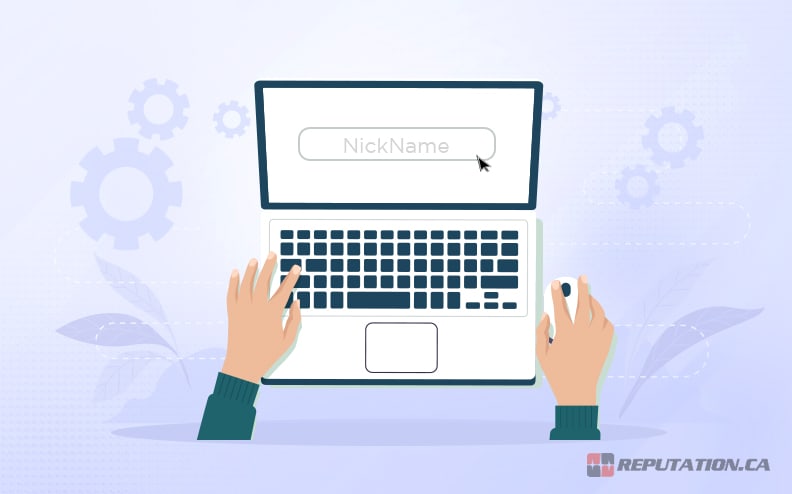At birth, we are assigned a badge of identification, whether we like it or not. Often, the names given to us by our parents are relatively unique, though the growing number of people on the planet has made sharing a name with strangers more common. In a world where the number of people is in the billions, sharing a name with someone you do not even know should not surprise you. Some names are more common than others, with some parents taking the goal of creating unique names for their children a little too far. While this can be unfortunate for the child given such a name, sometimes having a particularly distinct name can save you from frustration.
Modern society emphasizes reputation and public image, with anyone stepping outside basic morality being viewed unfavorably. This is not necessarily an issue for anyone who keeps within the boundaries of morality, but it gets a little harder when you have a fairly common name. An unfortunate byproduct of sharing a name with a stranger is that their behavior and reputation can be mistaken for yours. Managing your own public image while accounting for that of a stranger is a substantial challenge. Fortunately, with the right steps, it is one you can avoid.
The human race is an ever-expanding species that grows with every passing moment. There is a new birth every 9 seconds. The more people there are, the more likely you are to share a name with someone you have never met. As you read this text, a new human is born and adding to the human population. Currently, the United States has a population of 333,014,977 people and climbing, according to the United States Census Bureau. By the time you have finished reading this line, the population will have climbed further. With so many people in the United States alone, it seems like sharing a name with someone is an inevitability rather than a coincidence.

The U.S. Census Bureau also tells us that over 151,000 different surnames and over 5,000 different given names are in use in the United States. This allows for over 783,000,000 different combinations in a population of over 300,000,000. At the very least, this makes the likelihood of sharing the same first and last name with someone statistically improbable. Unfortunately, the chance still exists and is more common with some names than others. For example, the most common name in the country is John Smith. Currently, there are 48,560 different people named John Smith in the United States.
It is also humbling to remember that these numbers are only for the United States. The total number of people worldwide is 7,969,381,330 and climbing with each second. While certain countries have different naming conventions, this shows how many of us are truly out there. Canada has a population of 38,462,861, with the number growing just like the United States. Canada also has the trait of having a French-speaking population that impacts the naming convention. While sharing a name with somebody is not inherently bad, it can complicate things if your name buddy gets into trouble regularly.
What Risks Does Sharing a Name Bring?
The modern era has a trait that previous points in human history lacked. The advent of the internet and information technology, and its evolution, have led to the rapid transmission of information across countries. Thanks to social media, electronic correspondence, and other communication tools, it is easy for the affairs of the common citizen to be broadcast for virtually anyone to see. This means sharing a name with someone else puts their digital footprint squarely in your world. Usually, this does not mean much since the average person is probably not doing anything uncouth. Unfortunately, exceptions exist that make curating your name fairly important.
When you are job hunting, one particular issue that can arise for individuals when you share a name with someone else is that most employers are swamped with applications from others who are gunning for the same position. The sheer number of applications means a potential employer will not go above and beyond to differentiate between you and someone you share your name with beyond a cursory glance. This can be problematic when the background search comes up, and the employer Googles your name for any unsavory conduct or qualities.

This can also affect existing professionals. Ultimately, if your name buddy has done anything to call the quality of their character into question, it can reverberate back to you. Their misconduct and scandals can easily become yours if the only difference between you is physical appearance. The issue is that the average researcher often overlooks even glaring physical differences if you are not well known. While it is not exactly fair for someone else’s mistakes to become your problem, it is inescapable that sharing a name with a less savory individual can lead to your own reputation getting tainted.
Because of this risk, finding ways to distinguish yourself from the one you share a name with is important. Otherwise, you risk dealing with the consequences of their actions and behavior despite having nothing to do with them. Fortunately, it is possible to distinguish yourself from others with a few well-established tactics.
Distinguish Your Name From Theirs
One of the quickest methods for separating yourself from your name buddy is to make your name distinct from theirs. There are a couple of ways you can do this without having anything radical. While not every solution will be effective in a professional setting, it can help you overcome the reputation of your name buddy with only a fraction of the effort. One of the first things that might come to mind is going by a nickname rather than your legal first name. This is not necessarily an option when applying for a job where your legal name is mandatory, but it can help in social settings.

For scenarios where using your full legal name is inescapable, there is still a way you can meet the legal criteria and set your name apart. Most citizens are given a middle name, usually to honor a relative or help distinguish their initials. The middle name is part of your legal name, meaning you are entitled to use it as a distinguishing factor when filling out legal paperwork. Sometimes, including your middle name or even the middle initial is sufficient to distinguish you from someone who shares your first and last name. If you share the same middle initial with your name buddy, it can make this option useless, but the odds are substantially lower than sharing only a first and last name.
Distinguishing your name, while viable, is not the only thing you must do if you want to distance yourself successfully from your name buddy. Your name is only so important, but the information attached to that name is even more important. This means the next thing to do is turn the internet into a tool for your reputation rather than theirs.
Modify Your Digital Footprint
The odds are high that your name buddy’s reputation is affecting you due to their digital footprint being misattributed to yours. When you share a name with somebody, their information tends to follow you despite not knowing them in any way. Fortunately, the internet and digital mediums are not exclusively harmful, and you can repurpose their algorithms and interface to help set you apart from your counterpart. The use of social media or the internet leaves behind a digital footprint, which serves as a virtual trail leading back to you. Depending on your online activity, this digital footprint can be beneficial or detrimental.
While your name buddy’s digital footprint might lead back to you due to a communication error, you can revitalize your digital footprint, so the information that pertains to you is what shows up on a Google search. The best way to do this for private use is to make use of your social media profiles to create a more noticeable presence for yourself online. Twitter, Instagram, LinkedIn, Facebook, and even YouTube can all play a role in your presence on the internet. By revitalizing your presence on these platforms, you can distinguish your works and beliefs from those of your name buddy.
Social media is not the only way to modify your digital footprint to distinguish yourself. If you are trying to distinguish yourself so that your business is not affected, it might be in your best interest to create a website focusing on your business and your name to keep it separate from your name buddy. You can use these websites to host blog posts and other new content. You can use the creation of these websites and content to modify how the Google search engine prioritizes results.

New content gets priority over older content, including older content from your name buddy. Keeping a website updated about your business can help prevent results from your name buddy from overshadowing information about you. You can use another tactic to modify your digital footprint and preserve your reputation. This one requires you to reach out to websites hosting information that might be taken the wrong way, especially if that information is about your name buddy instead of you.
It is possible to reach out to websites and request that certain information or results be removed when they harm your reputation. Google has its own methods for doing this, but private domains will require you to reach out and ask the domain’s owner if the information on the website is being attributed to you rather than your name buddy. If the information is being falsely applied to you rather than the person it pertains to, and your reputation is damaged, some domains will take measures to correct this when a request is made. Unfortunately, this tactic does not offer guaranteed results as a domain has the right to refuse to pull its content.
Modifying your digital footprint can be a highly effective method for overcoming the reputation of a stranger who shares a name with you. This level of reputation management can be a strain if you attempt to accomplish it alone. Fortunately, you do not necessarily have to go it alone if you want to alter your reputation, so someone with the same name does not tarnish it. Sometimes a little help is all you need.
Take Your Reputation Back
Maintaining a public image is an intense and time-consuming endeavor that is complicated enough without worrying about someone else. Unfortunately, the growing population means the odds of another person sharing your name increases daily. This means that their actions might be mistakenly associated with you unless you take care to curate your reputation and overcome the details of your name buddy.
Whether you need to revamp your social media presence or make your name stand out a little more, you must try if you do not want a stranger affecting your reputation. While this can be a daunting task, it is not one you need to perform alone. Some resources will allow you to retain the services of a specialized firm that will tend to your reputation on your behalf.

We at Reputation are one such firm dedicated to helping our clients overcome reputational damage by curating their online presence. We will use our resources to modify your social media presence, perform Google searches, and identify harmful content to your public image. From there, we can take steps to eliminate that harmful information, so your life is not complicated by the actions of a stranger who happens to share a name with you.
A reputation is surprisingly fragile, given how difficult it is to build one up. When it is destroyed by someone who has nothing to do with you, it can be devastating. So, rather than go it alone, we encourage you to visit our website so you can take your reputation back! We’re ready to get to work, and can’t wait to hear from you.











